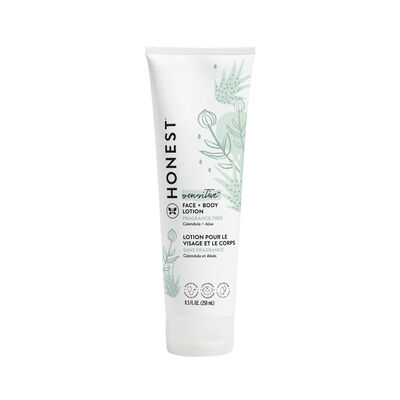Image shared by @jkominski
The winter season has officially arrived, and with it cold, sometimes snowy weather and freezing temperatures. Even though snow days might be a fun opportunity to get out and enjoy yourself, there’s no denying it’s also a season that you spend quite a bit of time stuck indoors. Depending where you live, the winter months can be harsh and have a strong impact on your health, be it mental or physical.
Potential Effects of the Winter Season
Physical Effects
Keep in mind that winter months can have a direct impact on your physical health. The biggest and most commonly felt concern is the onset of illness like colds, influenza, and other seasonal viruses.
Cold air may also:
- Constrict blood vessels and negatively impact cardiovascular health
- Contribute to hypothermia in elderly people
- Trigger an asthma attack
- Cause flares in arthritis and joint pain
- Cause joint stiffness
- Contribute to overeating
Mental Effects
Unfortunately, when the sun sets halfway through your day, it’s bound to have an effect on your mental health as well. During the winter months, outdoor social activities grow scarce, especially if it’s snowing. This lack of fresh air and vitamin d results in a decrease in physical activity, putting you into a sort of “hibernation mode”.
Hibernation mode can sometimes affect your mental health negatively, stirring up feelings of loneliness and depression, known as the winter blues. Some people may suffer from “Seasonal Affective Disorder (SAD)” which is a type of seasonal depression. SAD commonly surfaces in early winter months and can last through until spring, or sometimes even early summer.
Skin and Hair Effects
Of course, we would be remiss in not including the effects of winter weather on your hair and skin! The harsh, cold, dry air during winter months causes your skin to dry out. That can result in itchy and irritated skin, which definitely isn’t fun!
Seasonal changes may also cause breakouts while your skin is adapting to the external changes. For people that suffer from eczema, rosacea, and other skin conditions, the winter months could flare up already existing problems. Like your skin, your hair can also become rough and dry in extreme temperatures. That’s why it’s so important to take care of both!
9 Health Tips for Winter
Now that you know what a beast the winter season can be to your health, whether that’s physically, mentally, or emotionally, on to the good news!
There are things you can do that may help mitigate the negative effects of a cold, dreary winter and keep your mind, body, and skin healthy and thriving. Try a one or try them all, and set yourself up to slay once spring arrives.
Tip 1: Eat a Nutritious Diet
The first and foremost thing for optimal health in any season is your diet. What you eat will determine how well you feel as you go about your day-to-day. During the winter months, try to incorporate fresh, seasonal fruits and veggies into your meal plans as often as you can.
Seasonal produce may help give your body a dose of just what it needs during that particular time of year, though that doesn’t mean you can’t also eat fresh fruits and vegetables that aren’t in season. Do what works best for you and your family.
Protein and dairy are excellent ways to help keep your body and skin moisturized from the inside out, especially during colder months when everything just “feels dry.”
You can also look for citrus fruits to add to your dietary roster, as they are rich in vitamin C. Good levels of vitamin C may help to boost your immune system and keep you safe from flu season.
Tip 2: Don’t Skip Exercise
Just because you might not get to go out and partake of your normal physical activities in the dead of winter it doesn’t mean you can’t exercise at home! You can also go to a local gym, whichever you prefer. Both options are warm and toasty, so there’s really no excuse not to move your booty during the winter just as much as you do during the summer or spring.
Not only does regular exercise keep both your mind and body strong and healthy, it’s also a great stress and anxiety reliever. It might help to reduce the effects of SAD, and give you an outlet for any anxiety caused by the current global pandemic.
Tip 3: Find Indoor Family Activities
As stated, this may not be a great time for outdoor or social activities. However, you can still find fun indoor activities to keep both yourself and your family busy. Not only will it bring some entertainment to an otherwise monotonous routine, but it will also give you some fun bonding time with your family and close friends.
Look for group activities everyone can participate in and maybe look for a couple one-on-one activities for those days when some of the family prefer to just do their own thing, but there’s always that one that is happy for a little extra “You” time.
Tip 4: Stay Hydrated
Hydration is key for mental and physical health, including your skin. When you are dehydrated, you can suffer from problems like headaches and nausea, brain fog, and lethargy, not to mention dry and itchy skin.
During cold weather especially, your skin is already prone to dryness. That’s why it’s vital to hydrate yourself properly and regularly. There’s an old saying that goes, “If you feel thirsty, you’re already dehydrated.” The goal is to be proactive so that you don’t reach that point. Aim for at least 8 glasses of water a day and try to supplement your water intake with juices and other healthy drinks.
Tip 5: Take Time to Relax
A lack of sunlight is one of the biggest factors in seasonal depression during the winter months. So, whenever the sun comes out, take advantage of it! Deviate from your daily routine for a bit, pop a squat outside, and relax as you soak in some sun. Not only with the rays do you good the relaxation will too!
Tip 6: Consider Supplementation
The truth is that in today’s world, a nutritious diet alone may not be enough to provide yourself with all the vitamins and minerals and nutrients your body needs. However, you can consider boosting your intake with vitamins and other supplements.
Learn to listen to your body to figure out what you need or may be deficient in, and be sure to check in with your health care provider before making any big changes in your diet. Your doctor can also run tests to determine any areas you may be lacking.
Tip 7: Moisturize
Can we really say this often enough? No skincare routine is ever complete without moisturizer. If you remember one thing about caring for your skin well, remember this one. Think of it like the cardinal rule of skincare.
Since cold air can dry out your skin and flare up already existing skin conditions, it’s best to be proactive to avoid itchiness, inflammation, and discomfort. Aim to moisturize your skin daily, every morning and every night, rain or shine. In winter it may be better to go with a thick cream formation for maximum hydration benefits. You can also opt for a moisturizing balm to help soothe and heal dry, cracked skin, like our Calm and Heal Melting Balm. It was designed for just such a purpose!
Tip 8: Make Skincare Routine Adjustments
Besides moisturizing regularly, it’s also a great idea to assess your overall daily skincare routine for any adjustments that might be needed during colder months. Evaluate the current products you may be using and swap out any drying products for extra hydrating and moisturizing ones. If you’re looking for additional information on your winter skincare routine, we’ve got you covered.
Tip 9: Be Responsible for Your Health
Whether it’s the common cold or COVID-19, take responsibility for your health. Don’t hang around other people if you know you may be sick to help reduce the spread of germs, don’t hang around other people if you know you are vulnerable to contracting something, wash your hands regularly, use your hand sanitizer gel and eat your Wheaties. Just kidding on the Wheaties, but definitely evaluate your food habits and make sure you are eating things that support your health and don’t detract from it.
Winter can be a tough season but life is all about what you make it. Set a goal to be as healthy as you can possibly be and then lay out your action plan on obtaining and maintaining that goal. You are your best ally in the fight for better health, both this winter and all year long.
https://magazine.medlineplus.gov/article/cold-weather-wellness-tips-for-staying-healthy-this-season
https://www.parents.com/parenting/better-parenting/advice/your-guide-to-staying-healthy-this-winter/?slide=slide_6e348b6f-6d19-4e15-9fab-9b87d4c62e57#slide_6e348b6f-6d19-4e15-9fab-9b87d4c62e57
https://health.clevelandclinic.org/top-6-winter-health-hazards-and-how-to-beat-them/
https://insights.ibx.com/winter-wellness-six-tips-staying-healthy-cold-weather-season/
We aim to provide you with the most honest and credible information possible. This article was reviewed for accuracy by The Honest Team and was written based on sources that are linked at the bottom of the article.
blog_review_statement




